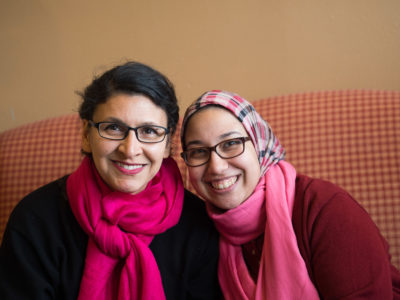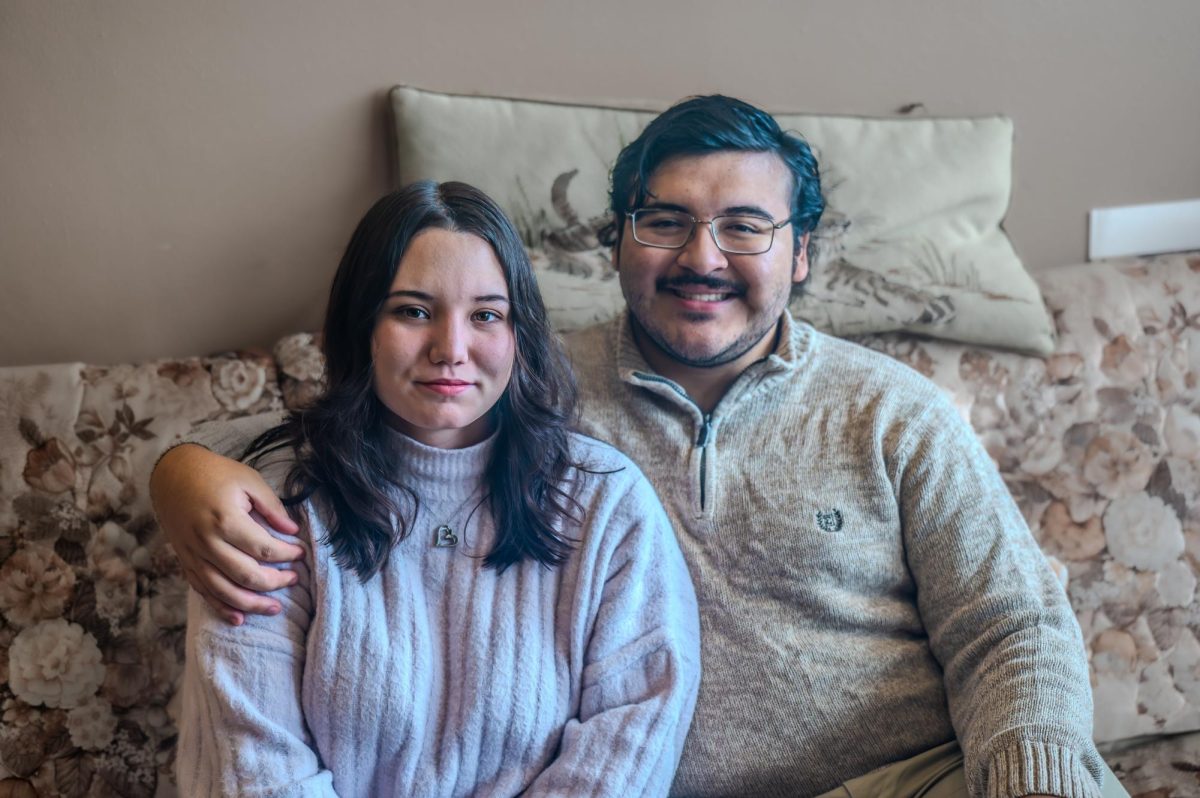
Arabic seems to be gaining momentum at Grinnell College, both musically, with the Al-Bustan Takht Ensemble performing with the Grinnell Singers this Sunday, and also academically.
Currently, Arabic study exists under the French and Arabic department of the College and offers two five-credit introductory courses (Beginning Arabic I and II) and two four-credit intermediate courses (Intermediate Arabic I and II).
“The course load [for Beginning Arabic] is a moderate amount, but that amount is required to have a good understanding of the language and to start not only thinking in Arabic but also beginning to increase fluency,” said Mary DaVega ’21, who is currently taking Beginning Arabic II.
However, in the 2018-2019 academic year, courses beyond these four classes will be offered to the students for the first time.
“It was possible because the Dean’s Office gave us the ‘go ahead’ on hiring an [American University in Cairo] Arabic Fellow,” said Professor Mervat Youssef, one of two instructors of the Arabic classes, who is currently on sabbatical. “So we played a little bit around [with] how we are going to offer classes, which made it possible for us to offer third year Arabic… I’m so happy!”
Several alternative programs of study, such as intensive guided readings in the various branches of Arabic—Jordanian, Egyptian, Moroccan)—have been made available to students who have approached the Arabic faculty with enthusiasm. They always look forward to their students asking them to provide more for them and they try to cater to their needs.
“What appears in the books does not represent what we do … when you look at what we have been able to accomplish with what we have, you’d be surprised,” Youssef said.
For DaVega, her inspiration to study Arabic in college stems from discontentment with media portrayals of Muslims and people from the Middle East.
“As an American, I was upset at the way that Muslims and Middle Eastern people are portrayed in the media,” she said.
However, the lack of an Arabic concentration persists to be an obstacle for many students who are enthusiastic about the language.
“One of the things that I, as a student studying it, want is at least a concentration because I need to be able to build up the skill. People will say, ‘There is not enough demand to take Arabic, so why make it a concentration?’ but they are looking at it as a cause when really it’s an effect of the fact that there is no concentration or minor, so students aren’t seeing the value in learning it if it won’t count on paper and only in theory,” DaVega said.
When asked what she had to say about the non-existence of an Arabic concentration in Grinnell, Professor Sahar Ramadan, the only professor teaching Arabic this semester, laughed and said that the question “is like a weekly assignment” for her, even in her third year at the College.
“We are working within these limits — it’s a baby program, kind of — you have to go step by step, but more importantly, it’s about how solid your education has been during these two years,” Ramadan said.
“We have been working so hard to make it possible for people who want to pursue Arabic to actually be able to pursue Arabic. So in a better world, we would be able to have more offerings. But given what we have, I think we fare well,” Youssef said. “Next year is going to be one of these glorious years, when you can actually do first year, second year, third year [Arabic courses] and that’s all regular instruction, which is amazing!”
Youssef and Ramadan hope that this endeavor meets the support and enthusiasm of the students and that they will be able to carry on the third year Arabic course in the future.
The limited number of classes has not held the Arabic professors back on their goals.
“This year, for the first time, we [are offering] two short courses. They are content classes, where we cover the historical, cultural, social background of Arabic literary translations,” Ramadan said.
Youssef also emphasized that, in the past, Arabic has opened doors for a couple of her students, who acquired reputable internships and job positions in Washington, D.C. because they “dared to do something different” by going out of their way to gain the “cultural literacy that comes with an Arabic class.” She still recalls one of her former students telling her, “Had I known that I would be here today, I would have paid more attention to Arabic!”
“I think in America, some people have reservations about the language and the culture and for more people to learn it, that would … show people that might be close-minded in America how similar we are as humans,” DaVega said. “Also, depending on who is in office, we may have a lot more [Arabic speaking] immigrants or refugees, so why not learn it?”



















































